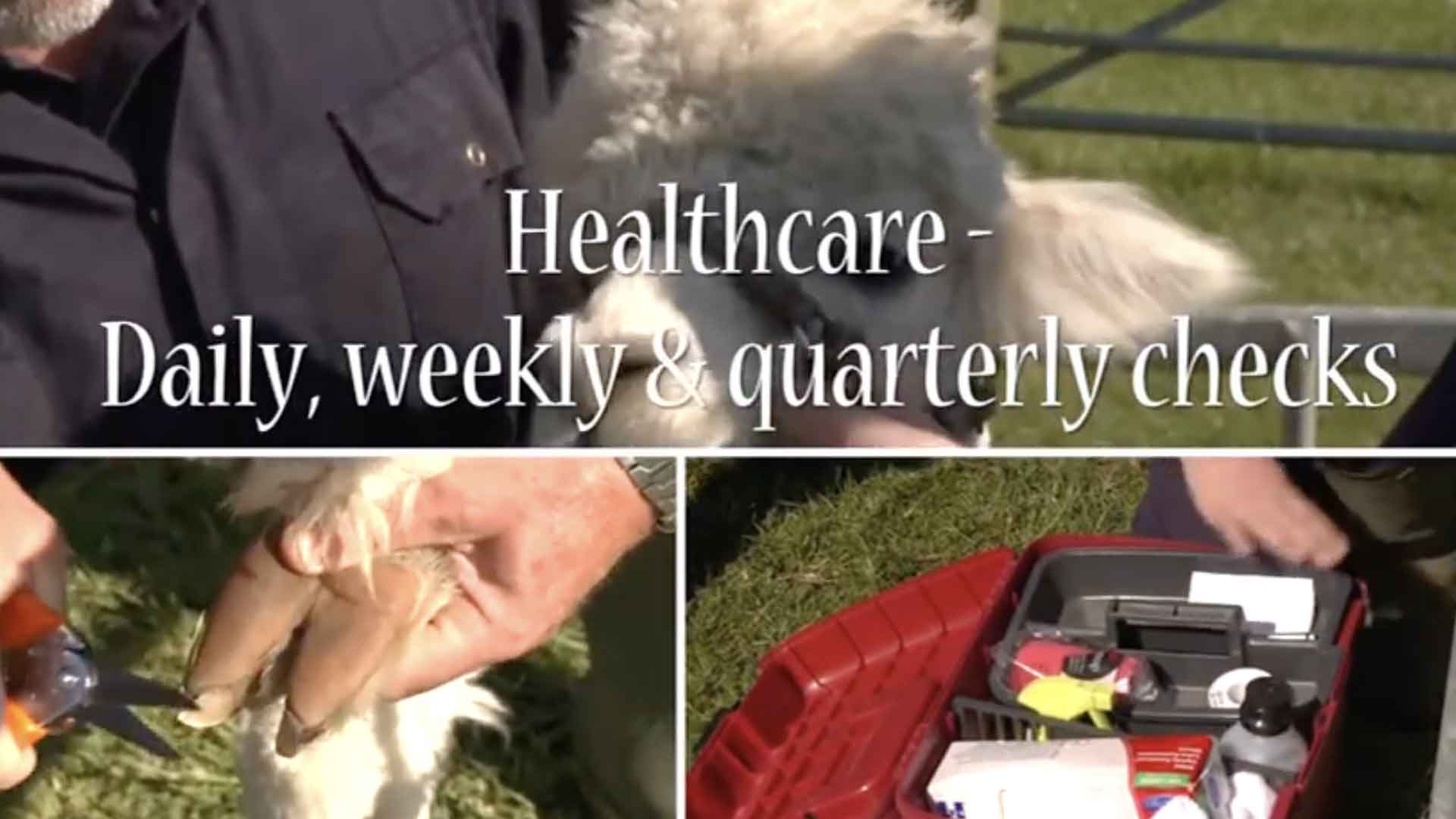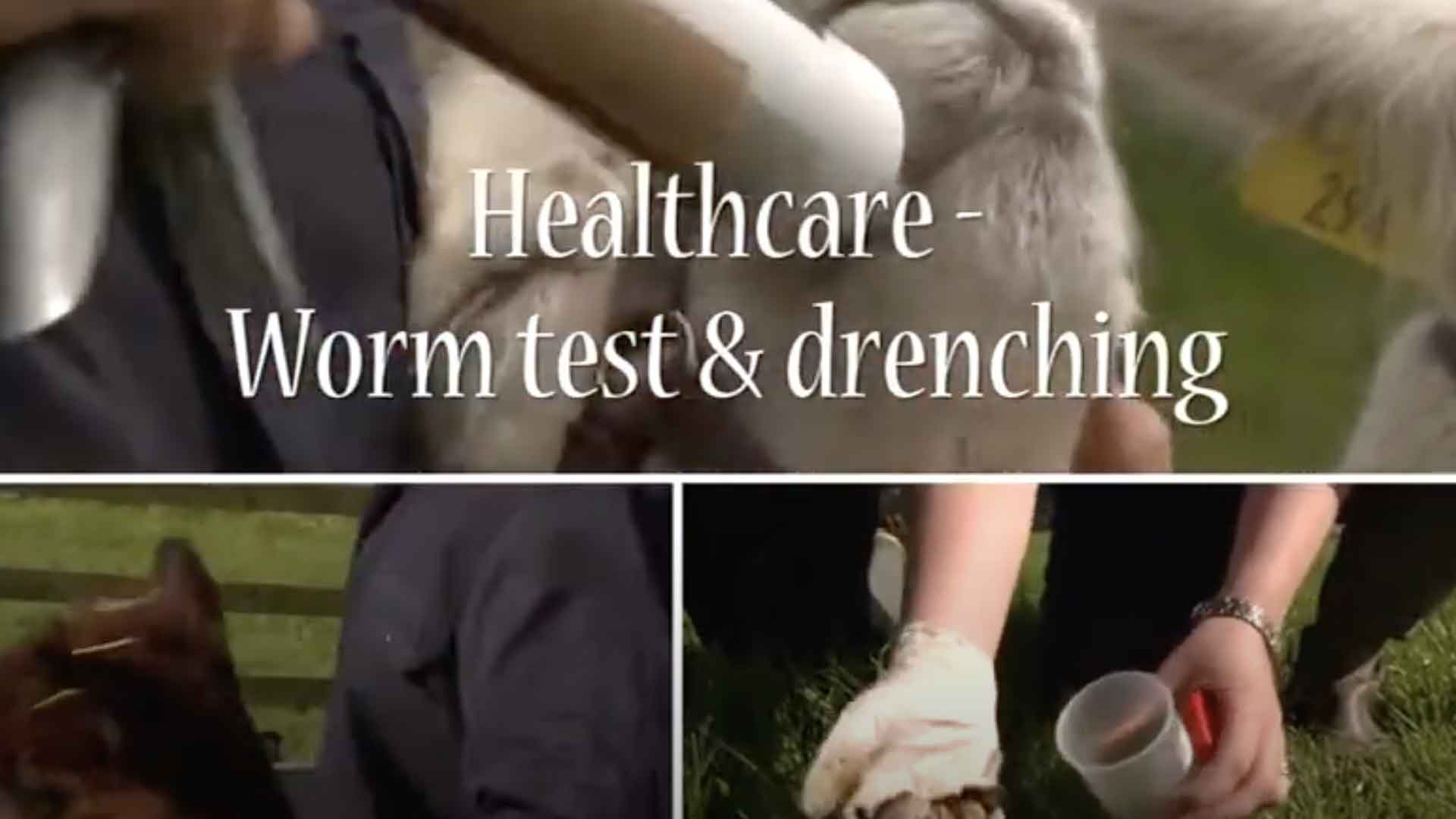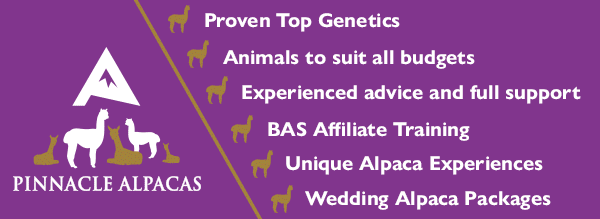
Routine care
There are daily weekly, monthly and annual tasks to ensure your alpacas’ good health.

Checking
All alpacas must be checked at least once a day (feed, water, health).
Foot care
Nail trimming should be carried out, on average, two to three times ayear, nails will grow at different rates on different animals. Check nails by lifting the feet. They may look okay from above but by lifting the foot you can clearly see if nails are longer than the pad. Nails left unattended can twist and deform the toes. Foot rot is not common in alpacas, but if conditions are extremely wet for prolonged periods, there should be an area of drier ground provided.
Body scoring
Body scoring is an essential part of routine husbandry and can help you determine whether an animal is healthy. Rapid condition/ weight loss may be a sign of underlying issues. If possible, weigh your animals regularly. See our condition scoring video here
Teeth
Teeth should be checked at least twice a year -growth will vary from alpaca to alpaca. Teeth that are too long can cause jaw misalignment and teeth that are too short can cause difficulty feeding. Always seek expert advice to correct any irregularities. Males should be checked from approximately 18 months old for the presence of fighting teeth and a professional person should remove these.
Parasite control
There are two processes by which parasites can be controlled. Firstly, by taking regular faecal samples for analysis and only worming animals when counts are high. Secondly, by routinely treating all animals every six months. Please consult a professional regarding your parasite control strategy. Be aware of coccidiosis, especially E mac, liver fluke and Haemonchus, as these can be fatal to alpacas if not treated correctly.

Vaccination
Discuss with your vet a suitable start-up vaccination programme and products that may be suitable. Alpacas (including cria) should be vaccinated against clostridial diseases (Blackleg, botulism, pulpy-kidney and tetanus).

Vitamins
In winter alpacas usually require supplementary A, D and E vitamins This can be done by injection or oral paste. It is especially important for late-born cria because it helps to promote good bone growth and development. A deficiency of vitamin D can lead to rickets.


